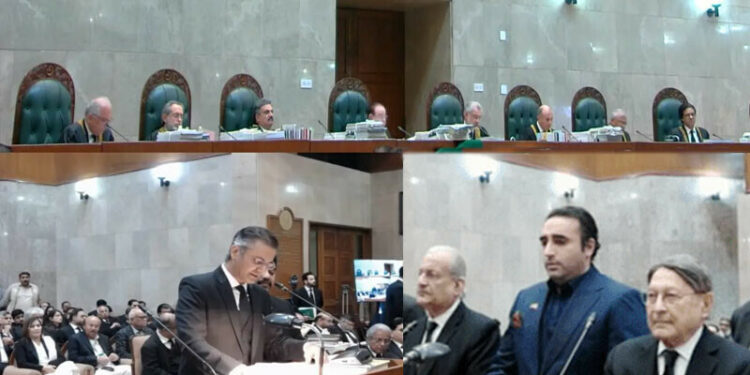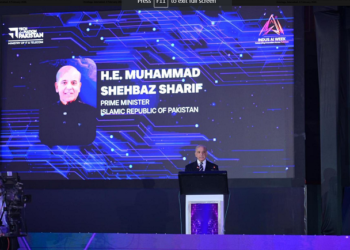Chief Justice of Pakistan Justice Yahya Afridi has issued an additional note in the Zulfikar Ali Bhutto case, in which he said that the fair trial requirements were not met by the trial court and the appellate court in this case.
Justice Yahya Afridi issued a 5-page additional note on the presidential reference in the assassination case of Pakistan Peoples Party founder Zulfikar Ali Bhutto.
The Chief Justice said that the decision of the former prime minister also highlights the importance of recognizing the courageous dissents of Justice Dorab Patel, Justice Muhammad Haleem and Justice G. Safdar Shah, who stood by their stand despite difficult circumstances.
It may be recalled that on March 6, the Supreme Court, after a delay of 44 years, righted a historical wrong by admitting that the Zulfikar Ali Bhutto assassination case was unfair and the fair trial requirements were not met by the trial court and the appellate court.
Chief Justice Yahya Afridi expressed regret that the unusual political environment and pressure of the time affected the process of justice, which is not in line with the principles of judicial independence.
He said that it is, however, noteworthy that this reference was filed in the backdrop of the restoration of the judiciary and the active role of the judiciary in resolving matters of public importance.
Justice Yahya Afridi explained that in the presidential reference, the ‘admission’ of former Chief Justice Naseem Hassan Shah (late) in the decision on Bhutto’s appeal was highlighted regarding external pressure and termed it as a sad chapter in judicial history.
He said that if it were not for the events and facts revealed in the interview and biography of Justice Naseem Hassan Shah, the reference might never have come before the court.
In the Supreme Court’s judgment, Justice Naseem Shah rejected the argument that Bhutto’s trial was due to bias on the part of Lahore High Court judge Maulvi Mushtaq Hussain.
However, this position directly contradicts the remarks of Justice Naseem Shah in an interview with Iftikhar Ahmed on the program ‘Jawab Deh’, in which Justice Shah had described Justice Maulvi Mushtaq as a bitter enemy of Bhutto and said that he should not have been part of the Lahore High Court bench.
In fact, the presence of Justice Maulvi Mushtaq on the Lahore High Court bench was called an excess, a term that could only be described as bias in the context of the trial. This clear contradiction in Justice Naseem Shah’s views raised concerns about the question of bias regarding Justice Mushtaq in the appeal.
Justice Naseem Shah had revealed some facts in his autobiography, he said that his inclusion in the bench to hear Zulfikar Ali Bhutto’s appeal was arranged by Attorney General Sharifuddin Pirzada and Justice Maulvi Mushtaq.
Chief Justice Yahya Afridi said that such manipulation in the composition of the bench undermines judicial impartiality and raises serious concerns about the transparency of the proceedings.
In his additional note, he said that I happened to read the notes of former Chief Justice Qazi Faez Isa and other judges and I agree with Justice Mansoor’s note to some extent.
Justice Yahya Afridi said that the opinion given in the reference has discussed the merits of the case to some extent, 186 The Supreme Court has only advisory jurisdiction, however, I agree with the paragraph of the judgment on the question of fair trial.

























